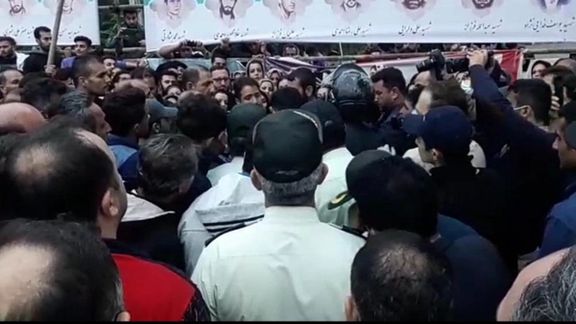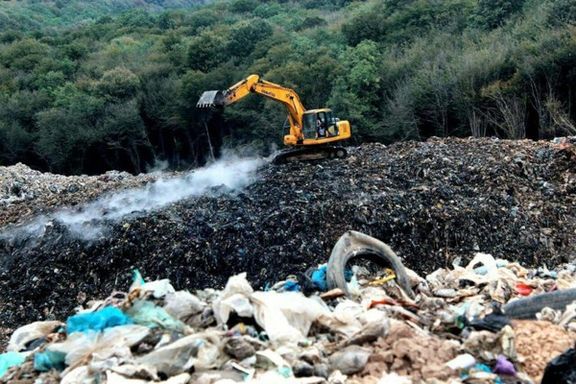Police Crack Down On People Protesting Local Landfill

Iran’s anti-riot police cracked down on people peacefully protesting unsanitary dumping of waste at a local landfill in northern Iran.

Iran’s anti-riot police cracked down on people peacefully protesting unsanitary dumping of waste at a local landfill in northern Iran.
A group of residents of the village of Saravan in Iran’s northern Gilan province started a peaceful protest on Thursday, but after police intervention, protesters began throwing stones. Five officers were injured and several protesters arrested.
According to videos circulating inthe socialmedia police used guns and teargas during the clashes.
Furious at the failure of the local authorities to close the gigantic waste landfill, people had been blocking the entrance of the garbage dump for more than two weeks to stop trash trucks from reaching the site.
Piles of stinking rubbish at the Saravan site now tower some 90 meters (295 feet) high, and according to estimates the volume of the waste exceeds one million tons while about a thousand tons is added to it daily.
Waste from the provincial capital Rasht and seven other cities has been dumped there for nearly four decades.
Protesters say the landfill, reportedly due to close next year, is causing diseases and health problems, and demand the site be closed immediately.

According to reports, officials have been promising to solve this problem for years but none of their pledges have been fulfilled so far.
The spokesman for Gilan province's waste management office, Javad Shafi'i, told the state broadcaster that some $4 million had been allocated to resolve the issue, including funding a "fertilizer and incinerator plant".
A report by Tehran Times newspaper said that poor waste management is causing environmental damage of around $1.7 billion annually.
Recently, Iran has seen several demonstrations over government mismanagement of environmental issues like the country's water crisis or building factories in natural heritage sites.
Earlier in April, a group of residents held a protest rally in southwest Iran against a project to transfer water out of Chaharmahal-Bakhtiari province, causing water scarcity in their region.
During the protest in the provincial capital of Shahrekord, people carried placards and chanted slogans threatening to take up arms against the ‘mafia’ behind the redistribution project.
Chaharmahal-Bakhtiari, a traditionally water-rich region in the Zagros mountains, has seen its water resources decline due to both drought and projects to irrigate other arid regions.
Iran has been suffering from drought for at least a decade and this year officials have been warning of a further decrease in precipitation.
Moreover, controversy over an environmentally dangerous petrochemical project continues in Iran as some government officials have defended it despite an earlier ban.
The petrochemical plant in Miankaleh, northern Iran is planned to be built next to a nature reserve, which galvanized opposition by activists and citizens in the past few weeks. President Ebrahim Raisi came out against the project earlier this month and Iran’s Judiciary issued an order to stop construction until further studies.
However, the governor of Mazandaran province and the Friday Prayer Imam of the region strongly defended the project. The government of former president Hassan Rouhani in an apparently hasty move approved the petrochemical project last year and it obtained the oil ministry’s permission in an unusually fast-tracked manner.